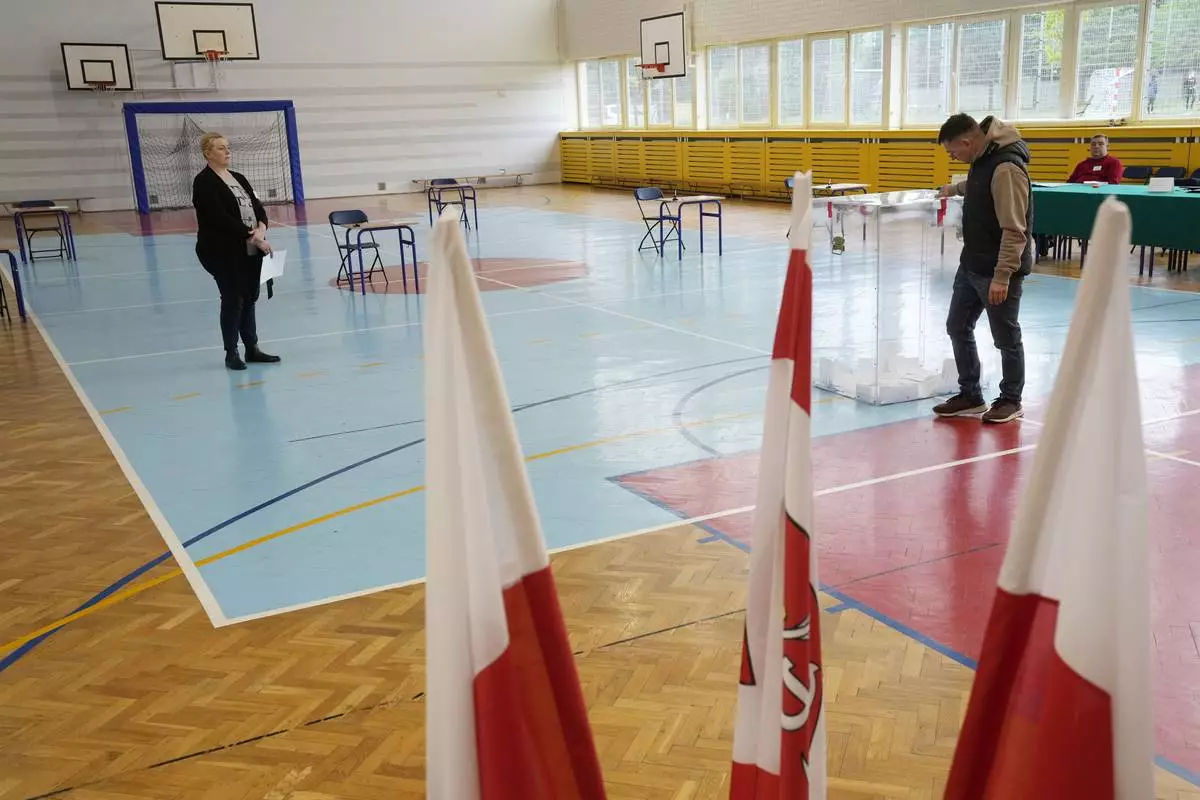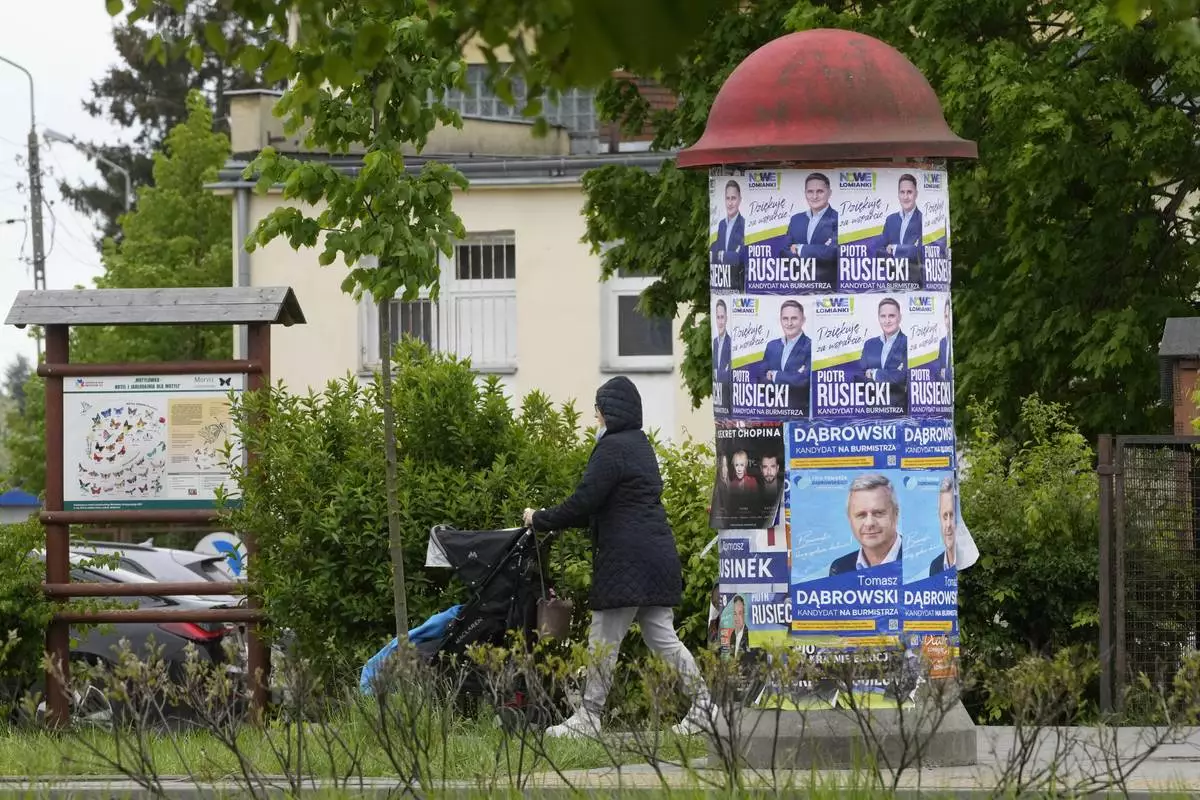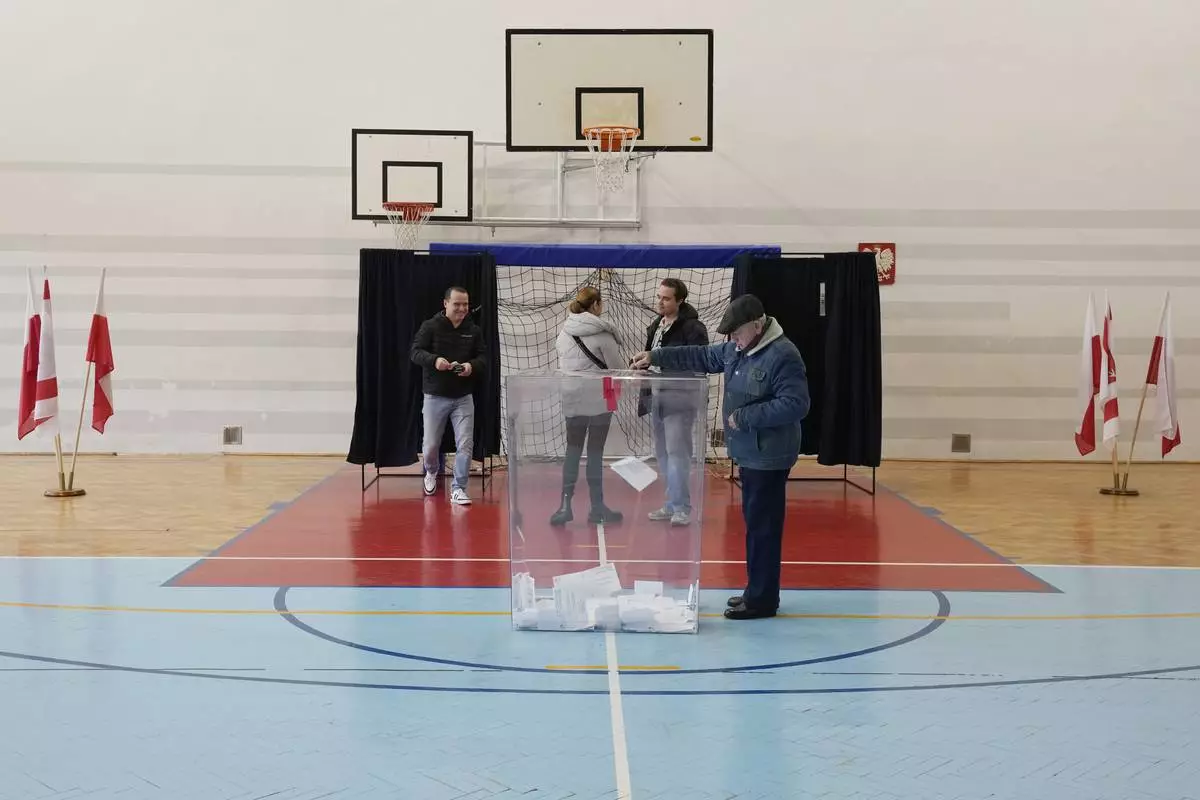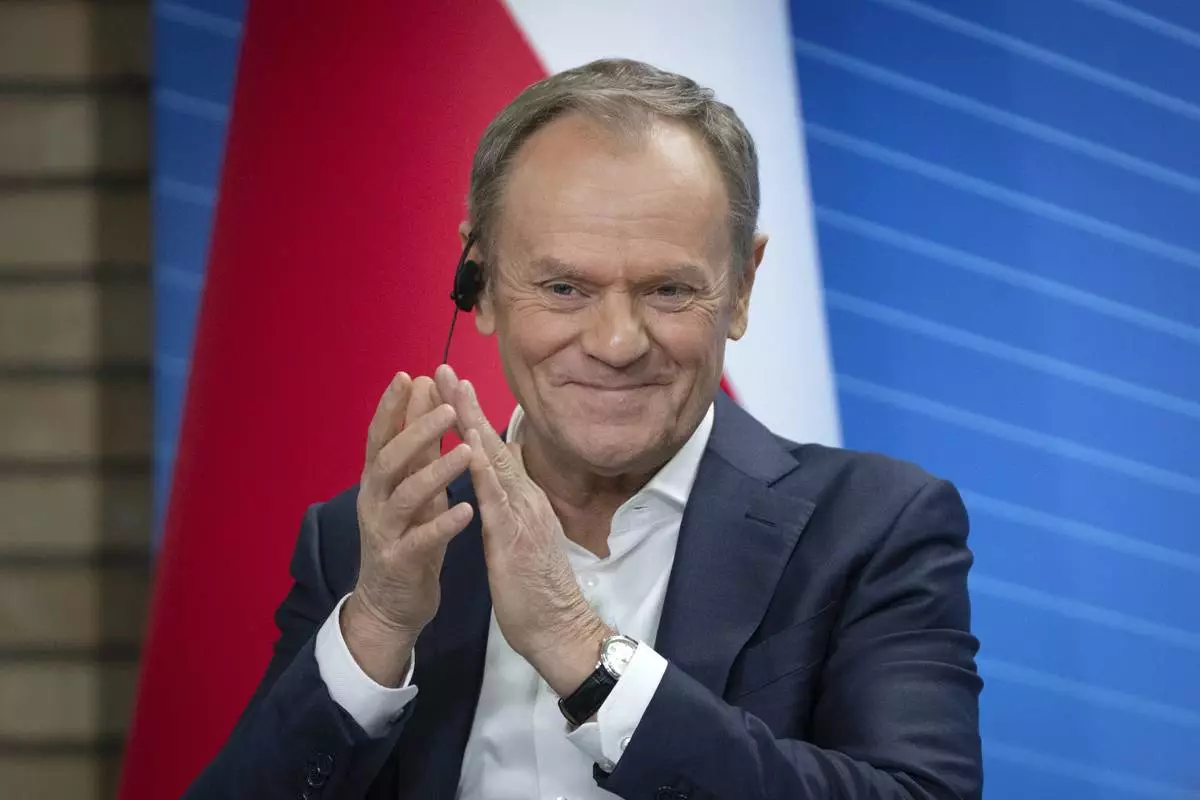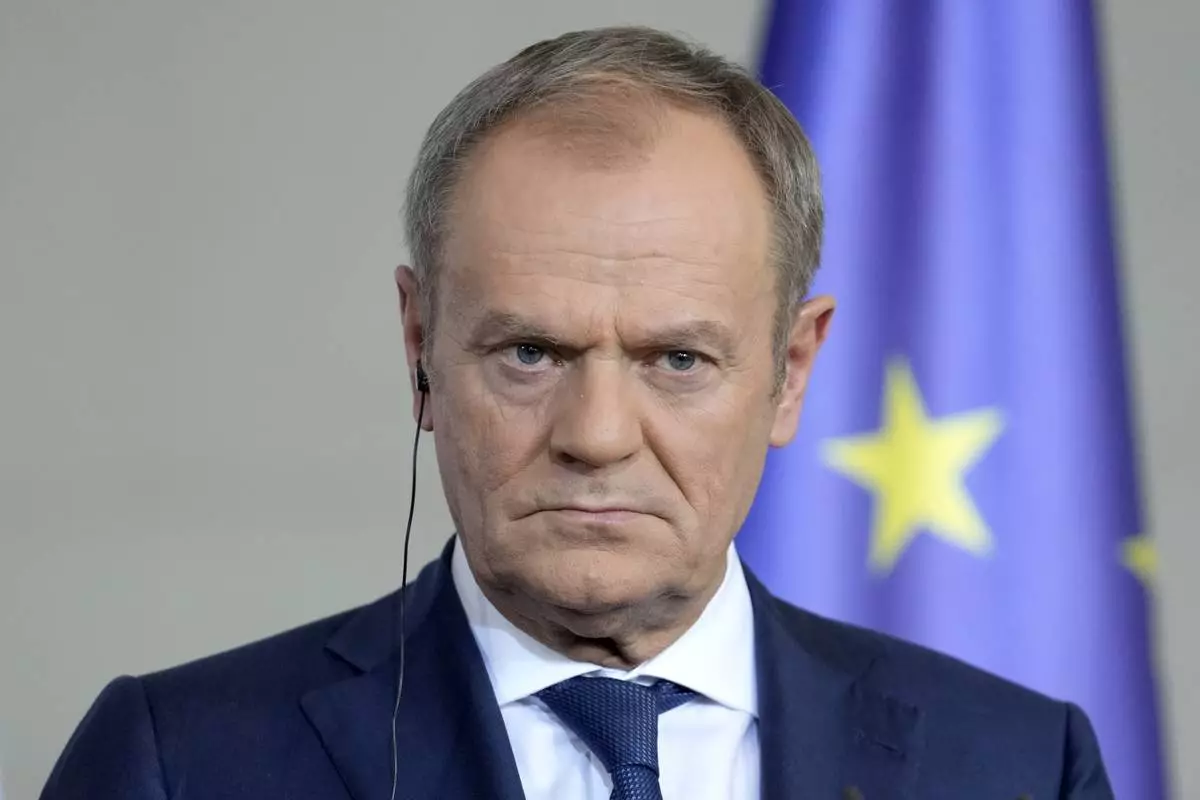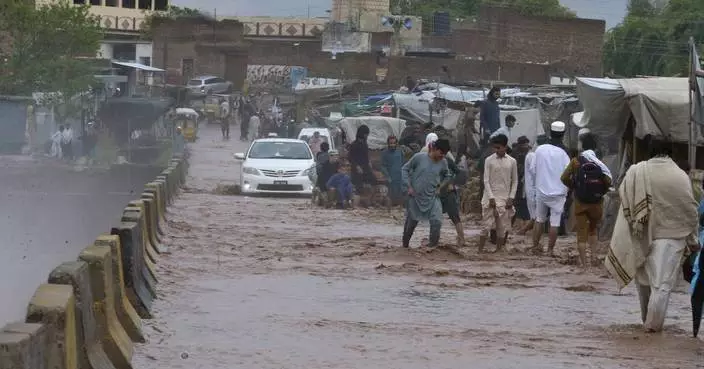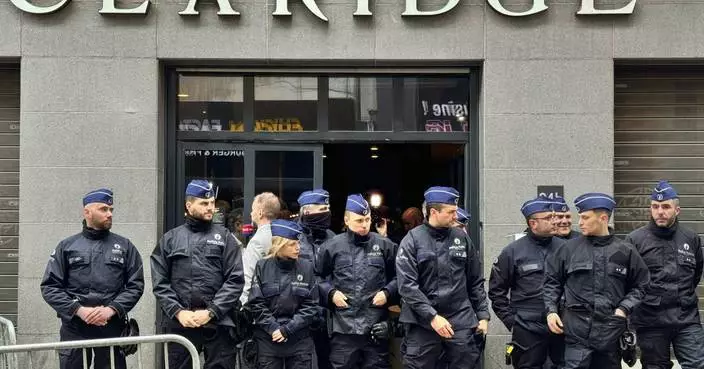Spain appears to have stemmed a surge in illegal migration that made it Europe's main entry point for sea arrivals, after boosting joint efforts with neighboring Morocco to clamp down on the flow.
Spain, which holds a national election Sunday, saw nearly 60,000 people reach its shores irregularly in 2018, most from Morocco and West Africa. But sea arrivals plummeted in February and since then have remained at the lowest level in two years, Spanish statistics show.
While the migrant flow often fluctuates due to weather and other factors, an internal European Union report obtained by The Associated Press suggests intensified efforts to stop the migrants before they're able to reach European waters are paying off.
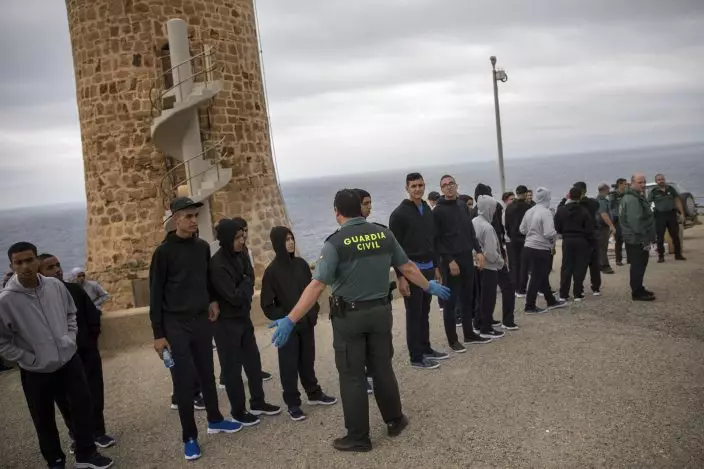
FILE - In this June. 28, 2018 file photo, a Guardia Civil officer stands next to Moroccan migrants after they arrived on the beach sailing on a rubber dinghy near Tarifa, in the south of Spain. Spain appears to have stemmed a surge in illegal migration that made it the main Mediterranean entry point for migrants seeking ways into Europe by increasing Morocco's involvement in border control. (AP PhotoEmilio Morenatti, File)
"In the last four months, the increased cooperation between Spanish and Moroccan authorities has significantly contributed to decrease the illegal migratory flows towards Spain," says the report, which was distributed to member states in March.
The report doesn't specify what Morocco did to hold back migrants or what it got in return other than "explicit recognition and support" from the Spanish government and the EU's executive Commission in Brussels.
The EU office dealing with relations with neighboring countries including Morocco declined to comment on the report but noted that the bloc has spent 232 million euros ($262 million) on migration-related projects with Morocco since 2014, mostly in border control and fighting smugglers.
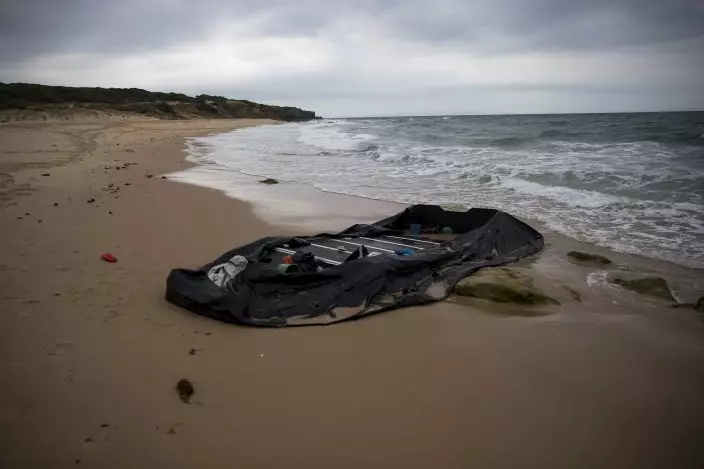
FILE - In this Thursday, June 28, 2018 file photo, a rubber dinghy used by Moroccan migrants is seen near Tarifa, in the south of Spain. Spain appears to have stemmed a surge in illegal migration that made it the main Mediterranean entry point for migrants seeking ways into Europe by increasing Morocco's involvement in border control. (AP PhotoEmilio Morenatti, File)
More recently, Rabat received 36 million of a 148 million-euro emergency package approved by the EU in late 2018 to boost Morocco's capacity to protect vulnerable migrants, address irregular migration and dismantle human smuggling networks.
In an election debate this week, Spanish Prime Minister Pedro Sánchez stressed the need to reinforce cooperation with countries of origin and transit on the migrant trail to Europe. "It is what the government of Spain is doing with Morocco and with sub-Saharan countries," he said.
Human rights experts warn that outsourcing Europe's border control to North African countries creates a risk of human right violations. Amnesty International last year denounced a Moroccan crackdown on sub-Saharan migrants, including alleged mass roundups and expulsions without due process.
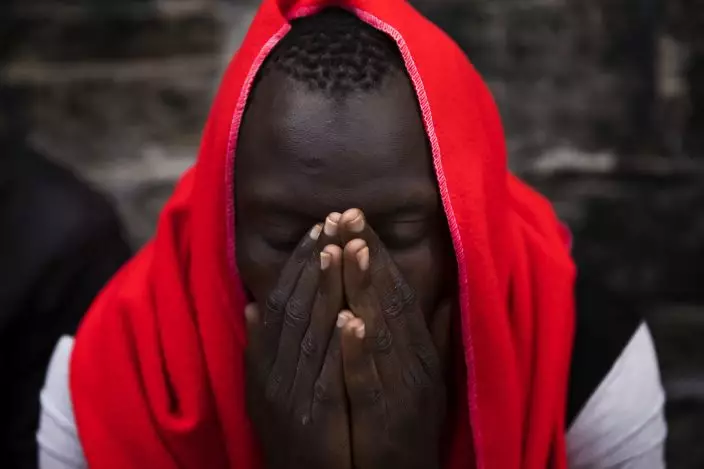
FILE - In this June 27, 2018 file photo, a migrant rests at the port of Tarifa, southern Spain, as he waits to be transported to a police station after being rescued by Spain's Maritime Rescue Service in the Strait of Gibraltar. Spain appears to have stemmed a surge in illegal migration that made it the main Mediterranean entry point for migrants seeking ways into Europe by increasing Morocco's involvement in border control. (AP PhotoEmilio Morenatti, File)
Alarm Phone, a network of activists behind a hotline for migrants in distress at sea, said it believed arrivals are down "due to repressive campaigns in Morocco and political developments in Spain that affect search and rescue operations" in waters around the narrow Strait of Gibraltar that separates the two countries.
In contrast with Italy's hard line on migrants, Sánchez's center-left government initially adopted a welcoming attitude, even granting safe harbor last June to a humanitarian rescue ship that was refused by Italy and Malta.
But as sea arrivals soared and Spain eclipsed Italy and Greece as the top destination for migrants entering Europe irregularly, the government quietly shifted its stance, mindful of the rise of the far-right Vox party, which in December won seats in the legislature of the southern Andalusia region. Vox is polling at over 10 percent ahead of the national election on Sunday.
Spain became reluctant to accept migrant ships from other parts of the Mediterranean and ordered the Spanish Maritime Rescue Service to stop the daily tweeting of migrant rescues off Spanish shores, keeping the subject off the front pages.
The Maritime Rescue Service declined to comment on whether it is also ceding the initiative for rescues to Moroccan authorities, in a break with years of practice. It said only it is in a "project funded by the European Union with the goal of increasing Morocco's capacity of search and rescue."
However, the main union representing Spanish rescuers this week said the Maritime Rescue Service is increasingly instructed to wait and let the Moroccan Coast Guard assist migrant ships in distress, even though it "has few means and limited experience regarding the rescuing of human lives at sea."
In March, 45 people perished as their sinking dinghy waited to be rescued by the Moroccan authorities, 24 hours after the first distress call had been received by Spain. Moroccan vessels have a history of opening fire in attempts to intercept migrant boats, which last year resulted in the death of a 19-year-old woman.
Moroccan authorities did not respond to repeated requests for comment.
Overall the migrant flow to Europe has fallen sharply since 2015, when as many as 1 million entered the continent irregularly, mainly from Turkey to Greece. Border control deals struck with Turkey and later with Libya brought levels down considerably.
But traffic on the Western Mediterranean route increased, peaking in October last year with 11,000 sea arrivals in Spain. While numbers typically fall during the winter, they remained relatively high through January when 4,104 arrivals were recorded in Spain, but dropped 77 percent drop to just 936 in February. The number fell further in March, to 588, according to figures compiled by the International Organization for Migration, based on Spanish statistics.
In a written response to AP, Spain's Interior Ministry said "satisfactory cooperation" with Morocco was behind the drop in arrivals, adding it had donated 75 vehicles for Moroccan authorities to use in border control.
The ministry also acknowledged that Spain has acted as an advocate for Moroccan interests in the EU, calling them "fair and fundamental to maintain security and coexistence in the Mediterranean Sea."
Morocco and the EU recently agreed on a revised agriculture deal extending the Kingdom's access to the European market and a controversial fisheries agreement involving disputed waters off the Western Sahara region. The deals were backed by the European Parliament in January and February, respectively.
Meanwhile, Spanish King Felipe VI visited Morocco in February, signing 11 bilateral agreements, including one that reinforced the collaboration between Spain and Morocco to fight terrorism, human trafficking and illegal migration, the Interior Ministry said.
Associated Press writers Aritz Parra in Madrid; Amira El Masaiti in Rabat, Morocco; and Lorne Cook in Brussels contributed to this report.



